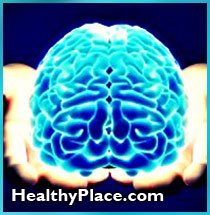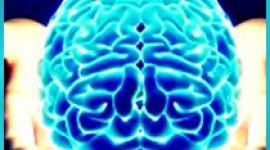Nutritional Supplements for Bipolar Disorder
Do nutritional supplements, vitamins and minerals, actually help psychiatric disorders, like bipolar disorder, and improve mental function? Some doctors and researchers say they do.
Leave your drugs in the chemist's pot if you can heal the patient with food." Hippocrates.
In a study published in the July 2002 British Journal of Psychiatry, 172 young adult prisoners in maximum security were given supplements of vitamins and minerals roughly equating to the US recommended daily allowance (RDA), plus fatty acids. The average time for those staying in the study was 146 days. While there was no change in the placebo group, there was a 35.1 percent drop in antisocial behavior for those taking supplements for at least two weeks and a 37 percent drop in violent offenses.
Speaking at a symposium, "Mineral/Vitamin Modification of Mental Disorders and Brain Function" at the 2003 American Psychiatric Association's annual meeting, the study's lead author, Bernard Gesch CQSW of Oxford, noted that crime has increased seven-fold in the last 50 years. Over the same period of time, he reported, the trace element content in fruits and vegetables appears to have fallen significantly. According to the Centers for Disease Control, 79 percent of high school students eat less than five fruits or vegetables a day, and it is estimated that the ratio of omega-6 to omega-3 intake has increased six-fold since Paleolithic times.
The RDA was never meant to be regarded as optimal, more than one speaker reminded those at the same symposium. Instead, it is the minimum considered to prevent diseases such as scurvy or beriberi. According to a review article by Fairfield and Fletcher published in the June 19, 2002 JAMA, "most people do not consume an optimal amount of all vitamins by diet alone."
At the same session, David Benton PhD of the University of Wales, Swansea, cited his 1991 study where those who took 50 mg of thiamin (Vitamin B1) - nearly 50 times the RDA - reported improved moods and exhibited faster reaction times, with no change in the placebo group. The study population (female undergrads) were all well-nourished with no mood disorders. In another study, those on 100 mcg of the trace mineral selenium - twice the RDA - reported less depression, anxiety, and tiredness following five weeks than the control group. Finally, a 1995 study on young healthy adults found that 10 times the recommended doses of nine vitamins after 12 months resulted in improved performance on a range of cognitive functions in the females but not the males.
 Dr. Benton related that the brain is arguably the most nutritionally sensitive organ in the body, playing a key role in controlling bodily functions. It is the most metabolically active organ, with two percent of the body's mass accounting for 20 percent of basal metabolic rate. With millions of chemical processes taking place, he went on to say, if each of these is only a few percent below par, it is easy to imagine some sort of cumulative effect resulting in less than optimal functioning.
Dr. Benton related that the brain is arguably the most nutritionally sensitive organ in the body, playing a key role in controlling bodily functions. It is the most metabolically active organ, with two percent of the body's mass accounting for 20 percent of basal metabolic rate. With millions of chemical processes taking place, he went on to say, if each of these is only a few percent below par, it is easy to imagine some sort of cumulative effect resulting in less than optimal functioning.
Added Bonnie Kaplan, PhD of the University of Calgary: "We know that dietary minerals and vitamins are necessary in virtually every metabolic action that occurs in the mammalian brain."
According to William Walsh PhD, Senior Scientist at the Health Research Institute and Pfeiffer Treatment Center in Illinois, writing on Safe Harbor's Alternative Mental Health On-Line website:
"The brain is a chemical factory that produces serotonin, dopamine, norepinephrine, and other brain chemicals 24 hours a day. The only raw materials for their syntheses are nutrients, namely, amino acids, vitamins, minerals, etc. If the brain receives improper amounts of these nutrient building blocks, we can expect serious problems with our neurotransmitters."
For instance, some depression patients have a genetic pyrrole disorder which renders them grossly deficient in vitamin B6. Pyrroles bind with B6 and then with zinc, thus depleting these nutrients. According to Dr Walsh, these individuals cannot efficiently create serotonin since B6 is an important factor in the last step of its synthesis.
An outcome study of 200 depressed patients treated at the Pfeiffer Center found 60 percent reported major improvement and 25 percent minor improvement. Treatment complements medications, but as the patient begins improving meds may be lowered or gradually dropped. Stopping treatment will result in relapses.
Another article on Safe Harbor's website notes that depression can stem from any number of other conditions in the body, including hypothyroidism, heart problems, lack of exercise, diabetes, and the side effects of other drugs. Nutrient deficiencies include: Vitamin B2, Vitamin B6 (which can be low in those taking birth control or estrogen), and Vitamin B9 (folic acid). According to the article, 31 to 35 percent of depressed patients have folic acid deficiencies.
Other deficiencies affecting depression include Vitamin B12, Vitamin C (to a lesser extent), magnesium, SAM-e, tryptophan, and omega-3.
A 2003 Finnish study of 115 depressed outpatients being treated with antidepressants found that those who responded fully to treatment had higher levels of vitamin B12 in their blood at the beginning of treatment and six months later. The comparison was between patients with normal B12 levels and higher than normal ones rather than between deficient and normal. The study's lead author, Jukka Hintikka MD, told BBC News that one possible explanation could be that B12 is needed to manufacture certain neurotransmitters. Another theory is that vitamin B12 deficiency leads to the accumulation of the amino acid homocysteine, which has been linked to depression. A 1999 study found that both higher levels of B12 (compared to patients with deficient levels) and folate (vitamin B9 found in leafy green vegetables)corresponded with a better outcome.
A 1997 Harvard study supports earlier findings that show: 1) a link can be made between folate deficiency and depressive symptoms, and 2) that low folate levels can interfere with the antidepressant activity of the SSRIs. A 2002 Oxford review of three studies involving 247 patients found that folate when added to other treatment reduced Hamilton Depression scores by 2.65 points in two studies while a third found no added benefit, leading the authors to conclude "folate may have a potential role as a supplement to other treatment for depression."
Psychology Today reports that several small studies have found that the mineral chromium - either by itself or with antidepressants - has proved effective for treating mild to severe depression. A recent Duke University study found 600 mcg of chromium picolinate resulted in a reduction of symptoms associated with atypical depression, including a tendency to overeat. Chromium may act on insulin, which controls blood sugar (researchers have linked depression and diabetes). The mineral is found in whole grains, mushrooms, liver, and brewer's yeast.
It isn't just about mood. According to Mattson and Shea of the NIH in a 2002 study: "Dietary folate is required for normal development of the nervous system, playing important roles regulating neurogenesis and programmed cell death."
An article in Psychology Today reports that antioxidants scavenge and fight off free radicals, those rogue oxygen molecules that damage cell membranes and DNA. The brain, being the most metabolically active organ in the body, is especially susceptible to free radical damage. Free radical damage is implicated in cognitive decline and memory loss, and may be a leading cause of Alzheimer's. Studies suggest that vitamins C and E may work synergistically to prevent Alzheimer's and to slow memory loss. The RDA for vitamin E is 22 international units (IU) and 75 to 90 mg for vitamin C, but supplements may contain up to 1,000 IU of vitamin E and more than 1,000 mg of vitamin C. In the Alzheimer's study, involving 5,000 individuals, the greatest impact occurred among those who took the two vitamins in combination. Taking either of the vitamins alone or taking multivitamins provided no protection.
A 2003 USDA Human Nutrition Research Center on Aging/Welch Foods study of rats nearing the end of their expected life spans found that feeding them Concord grape juice "appeared to reduce or reverse the loss of sensitivity of muscarinic receptors, thus enhancing cognitive and some motor skills." Juice-fed rats negotiated a water maze in 20 percent less time than the controls, among other tasks. Similar effects have been found in blueberries. Concord grape juice has the highest antioxidants of any fruits, vegetables, or juices.
Julia Ross, author of The Mood Cure, advises taking amino acids to counter some of the brain's deficiencies, including:
- Tyrosine, a precursor of both norepinephrine and dopamine, can act as an energizer, and is available over the counter. Phenylalanine, a precursor, to tyrosine, is also an option.
- Tryptophan, the precursor to serotonin, was removed from the US market in 1989 after a manufacturer produced a highly toxic contaminate, but is still available by prescription. Less is more, with lower doses (one to three gm) more effective than higher doses. Taking the amino acid with carbohydrates helps in its absorption.
- The intermediary between tryptophan and serotonin, 5HTP, is available without prescription. An Eli Lilly study found that combining 5HTP with Prozac significantly increased 5HTP in rats' brains compared to Prozac alone.
- Julia Ross refers to GABA as "our natural ," and recommends it to her clients for calming down. However, as this neurotransmitter does not easily cross the blood-brain barrier, you may wind up instead with very expensive urine.
Psychology Today reports that Andrew Stoll MD, the Harvard psychiatrist who put omega-3 on the map with his 1999 pilot study, is exploring the amino acid taurine for treating bipolar disorder. Taurine acts as an inhibitory neurotransmitter. According to Psychology Today: "The results of the study have not yet been published, but Stoll did say that 'it works really well for bipolar disorder.'"
Rita Elkins in her book, "Solving the Depression Puzzle," notes that soil depletion may account for the deficiencies of certain vitamins and minerals in our diet. In making the case for nutritional supplements, she notes:
- Average calcium consumption in the US and Canada is two thirds of the RDA level of 800 mg.
- Fifty-nine percent of our calories come from nutrient-poor sources such as soft drinks, white bread, and snack foods.
- The average American achieves only half the recommended levels of folic acid.
- Nine of 10 diets contain only marginal amounts of vitamins A, C, B1, B2, B6, chromium, iron, copper, and zinc.
- Only one person in five consumes adequate levels of vitamin B6.
- Seventy-two percent of adult Americans fall short of the RDA recommendation for magnesium.
- The Journal of Clinical Nutrition reported less than 10 percent of those surveyed ate a balanced diet.
- Up to 80 percent of exercising women have iron-deficient blood.
In 1969 the Nobel scientist Linus Pauling coined the term "orthomolecular" to describe the use of naturally occurring substances, particularly nutrients, in maintaining health and treating disease. According to Dr Pauling: "Orthomolecular psychiatry is the achievement and preservation of mental health by varying the concentrations in the human body of substances that are normally present, such as the vitamins."
Orthomolecular medicine was pioneered by Abram Hoffer MD, PhD, who said in a 1998 interview, "I made a prediction in 1957 that by 1997 our practices would be accepted. I assumed it would take 40 years, since in medicine it typically takes two generations before new ideas are accepted. We're more or less on schedule."
Back at the midpoint in the schedule, a 1973 American Psychiatric Association task force report used the word "deplorable" to describe the lack of hard research evidence to back the claims of proponents of high-dose vitamins and orthomolecular treatment" In light of the fact that funding for these kind of studies is virtually nonexistent, however, the criticism is rather disingenuous. In fact, there is an institutional bias against studying more than one ingredient at a time, which dooms proposals for large-scale randomized control trials for multi-vitamins and minerals to death by red tape.
To turn the critical spotlight around, the evidence for the three meds combinations most of us find ourselves on is totally lacking, with no studies whatsoever, which would make any polypharmacy claims by the psychiatric profession equally deplorable (not that we would ever think of using such a term).
Thirty years later, the profession is still a long way from embracing nutritional supplements, but it has probably advanced from employing excessive rhetoric to attack its practitioners. Having said that, in today's largely unregulated market, quacks with fantastic claims abound, along with suppliers of shoddy goods. Buyer beware is the rule.
Speaking of fantastic claims:
In 2000, this writer happened to come across an item in a Canadian newspaper about an Alberta Company, Synergy of Canada Ltd, that was test marketing a mix of 36 supplements, called EMPower, based on a formula to calm aggressive hogs. I ran a short item in my newsletter, McMan's Depression and Bipolar Weekly, and next thing the company was bombarded with enquiries about its product.
Founder Anthony Stephan's story is compelling, how after his bipolar wife Deborah committed suicide in 1994, and how after exhausting all medical routes, he turned to friend David Hardy for help for two of his bipolar children. David came up with a variation on his formula he used for calming down hogs, and Anthony administered the supplement to his kids. As he describes it:
"Joseph was treated with lithium. When he would take the lithium he complained of severe side effects ... when he refused it, he would lapse into severe mania and panic within a couple of days.
"On January 20, 1996, Joseph started using the nutritional supplementation program. He weaned off the lithium within four days. Within two weeks, his mood and emotional control improved drastically. He has maintained total wellness, and essentially no symptoms of bipolar since that time."
As for daughter Autumn, who first exhibited symptoms when she was 20 and became increasingly difficult to control with her rapid-cycling moods and suicidal states:
"On February 18, 1996, Autumn started the supplement program. Within four days she was forced to eliminate Haldol and Rivotril [Klonopin] because of the drastically increasing side effects. Ativan was no longer required as the mania became more manageable in the absence of hallucinations. After one week on the program, she returned home to her husband. After one month, she began the reduction and elimination of the Epival [Depakote] (used as a mood stabilizer). March 28, 1996 marks the last day that Autumn took medication for bipolar affective disorder.
"Autumn has remained stable and healthy beyond her wildest dreams and the expectations of her psychiatrist, doctor and family for over four years now. In her final visit with her psychiatrist, he indicated that there was never an expectation for remission, given her diagnosis and severe and unrelenting cycles."
The downside of the Synergy program is it initially costs in the neighborhood of $130 a month to go on the eight capsules four times a day regimen. This eventually comes down to about 16 capsules a day, but the expense is likely to come out of your pocket rather than your health plan's.
EMPower has not suffered from lack of controversy. Health Canada has attempted to shut down its operations, its nonprofit arm, Truehope, Synergy's nonprofit arm which works with patients, has been accused of being hostile to psychiatrists and medications, a number of patients have complained of getting worse rather than better, a quack watch group has made Synergy its great white whale, and its founders have been taken to task for making allegedly exaggerated claims.
In December 2001, however, Synergy received a significant boost to its credibility with a pilot study and accompanying commentary published in the Journal of Clinical Psychiatry. In a University of Calgary open trial, 14 bipolar patients were placed on EMPower, concurrent with their meds. Thirty-three of the 36 ingredients in the supplement are vitamins and minerals, most about 10 times the RDA. After 44 weeks, depression scores dropped by 55 percent and mania scores by 66 percent. Most patients were able to lower their meds doses by 50 percent. Two were able to replace their meds with the supplement. Three dropped out after three weeks. The only side effect was nausea, which went away at a lower dose.
In her article, the study's author, Dr Kaplan, noted that deficient levels of some nutrients (eg B vitamins) are related to brain and behavior disorders as well as poor response to antidepressant medication. Less is known about trace elements, but zinc, magnesium, and copper all appear to play important roles in modulating the brain's NMDA receptor (which is being targeted by at least 20 medications presently in the development pipeline). Bipolar disorder, she speculates, may be an error of metabolism, or those with bipolar may be vulnerable to nutrient deficiencies in the food supply. "There is very good work," she said in an interview, "going back to the 1950s on something called biochemical individuality. For example, your requirements for zinc or B12 may be different from another person's. We're not clones. We're really very different biochemically."
In the November 2002 Journal of Child and Adolescent Psychopharmacology, Dr Kaplan reviewed earlier findings into minerals and vitamins and mood, including:
- Low intracellular calcium levels in bipolar patients.
- Serum zinc levels significantly lower in depressed patients, with the severity of the deficiency corresponding with the severity of the illness.
- A double-blind trail finding resulted in improved cognition.
- Dr Benton's study linking thiamin at a high dose to improved cognition and selenium to improved mood.
- A year-long double-blind trial finding high-dose multivitamins improved mood.
In an accompanying commentary to Dr Kaplan's EMPower study, Charles Popper MD of Harvard observed: "In view of the 50 years of experience with lithium, the notion that minerals can treat bipolar disorder is unsurprising ... Depending on how this line of research develops, [we] may need to rethink the traditional bias against nutritional supplementation as a potential treatment for major psychiatric disorders."
Dr Popper notes other promising developments, including omega-3, calcium, chromium, inositol, amino acids, and high-dose multi-vitamins.
Dr Popper in his commentary mentioned using the supplement to treat 22 bipolar patients, 19 who showed a positive response, 11 who have been stable for nine months without drugs.
Dr Popper, who co-chaired the APA symposium mentioned at the beginning of this article, observed that while nutrient supplements are probably safer than psychiatric drugs, one should be mindful of toxic levels and special circumstances. For example, high doses of vitamin A need to be avoided in pregnant women owing to risk of fetal harm.
The issue of interactions with meds was raised, but Dr Kaplan expressed her dissatisfaction with the term, interaction. Her theory is that nutritional supplements may improve the performance of metabolic pathways, thus amplifying the positive and negative effects of meds. As a result, therapeutic doses of meds can become overdoses. Truehope advises that new users will experience initial side effects from their meds thanks to the amplification factor, and urges patients to work with their doctor in lowering their meds dose. Overenthusiastic Truehope people may say you need to eventually go off all your meds, but just two patients in Dr Kaplan's small study and only half of Dr Popper's patients achieved this result..
If you are considering therapy with vitamins or other nutrients, do so with your psychiatrist in the loop. Since "integrative psychiatrists" are a rarity, it is wise to seek nutritional expertise from another source. It also pays to ensure that your psychiatrist is open-minded about nutritional supplements and would consider adjusting your meds if you responded well to your new regimen. Keep in mind that the final decision regarding lowering meds is one to be made between you and your psychiatrist, not with the person who is advising you on nutrition.
MDs with holistic expertise exist, some who conduct special lab tests to look for nutritional deficiencies or metabolic quirks. The American Holistic Medical Association provides a directory of its members, searchable by location and specialty.
You may wish to seek out a nutritionist, who has two to four years of specialized training, far more than the one class medical students get, though some MDs take additional courses to qualify as nutritionists. Clinical nutritionists have completed at least 900 hours of on-the-job experience. The National Association of Nutritional Professionals provides a directory of its members, searchable by location.
Naturopaths are another option, with training in nutrition, herbology, Chinese medicine, and other fields, but not medicine. Those who are NDs - naturopathic doctors - have four years of graduate training from a handful of schools in the US. The American Association of Naturopathic Physicians provides a directory of its members, searchable by location.
Safe Harbor also has a directory ranging from MDs to unlettered alternative practitioners.
And once more: Buyer beware. Nutritional supplements may turn out to be a life-saver for you, but you may have to negotiate a Wild West marketplace first. If you are highly skeptical of drug industry claims, maintain that same skepticism for natural products. Live well ...
Buy Elkins' Solving the Depression Puzzle from Amazon.com.
Buy Julia Ross' The Mood Cure from Amazon.com.
About the author: John McManamy is diagnosed with bipolar disorder. He is a professional writer and author of "Living Well With Depression and Bipolar" and runs McMan's Depression and Bipolar website.
next: Successfully Managing Bipolar Disorder
~ bipolar disorder library
~ all bipolar disorder articles
APA Reference
Staff, H.
(2004, April 27). Nutritional Supplements for Bipolar Disorder, HealthyPlace. Retrieved
on 2026, January 12 from https://www.healthyplace.com/bipolar-disorder/articles/nutritional-supplements-for-bipolar-disorder



